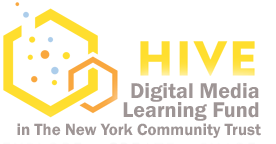The Department of Labor predicts the nation will add 1.2 million new computer-science-related jobs by 2022, but schools are graduating proportionately fewer computer science majors than in the 1980s. New research has shown that teaching “computational thinking,” instead of jumping into writing code itself, can help students understand how being computer literate is important in any career and can boost the number of girls and youth of color taking and completing computer science. For example, 74% of girls in middle school express interest in STEM (science, technology, engineering and math) but when choosing a college major, just 0.3% of high school girls choose computer science.
In contrast to traditional classes in public schools and higher education, learning to write code has been pitched in the media as a fun and easy process. Adults can learn the basics on an iPhone using an application from CodeAcademy: Code Hour. During Computer Science Week in December 2014, Code.org hosted Hour of Code, a worldwide event for anyone who wants to learn the basics of code. Over 60,000,000 people have tried an Hour of Code, including President Obama.
In New York’s under-resourced public schools, ScriptEd teaches teens basic coding skills and provides access to professional tech experiences. In Queens, Access Code 2.0 equips talented adults from underrepresented backgrounds with the computer programming skills and entrepreneurial training to launch careers in the tech industry. New York City government is supporting coding through the NYC Tech Talent Pipeline. And for adults who have the financial resources, independent businesses like New York Code+Design Academy teach intensive short-term coding workshops.
With so many entry points to learn how to code, how are foundations supporting coding and computational thinking in non-profit organizations and public institutions? Where does this “new literacy” fit into foundation guidelines – funding required classes in public schools, after-school youth development workshops or in adult workforce preparation and training?
Explore
- How foundations can focus support for digital literacy for different age groups
- Public school programs where students learn to code
- Examples of youth development organizations that teach coding for girls and youth of color
- How workforce programs train job seekers to learn basic coding as a key skill for employment
Presenters
- Jenny Correa, Program Officer, The Pinkerton Foundation
- Maurya Couvares, Co-founder and Executive Director, ScriptEd
- Jukay Hsu, Founder, Access Code 2.0, Coalition for Queens
- Leah Gilliam (Moderator), Director, Mozilla Hive NYC Learning Network
- Kristen Titus, Founding Director, NYC Tech Talent Pipeline
Designed for
All interested funders.
Registration
8:45 - 9:00 AM Check-in
9:00 - 11:00 AM Program
Registration is required by January 21st.
Members: To register yourself and/or a colleague at your organization, please log in and click the Register Now link above. (no fee)
Guests of Organizers/Co-Sponsors: Please email register@philanthropynewyork.org with your name, title, organizational affiliation, business mailing address, and phone number. Please indicate by which organizer you were invited. (no fee)
Non-Member Funders: Create an account or log in above and click the Register Now link. ($150 fee)
Can't attend in-person? Watch this session via live stream!
Please email register@philanthropynewyork.org with any questions.
In collaboration with




